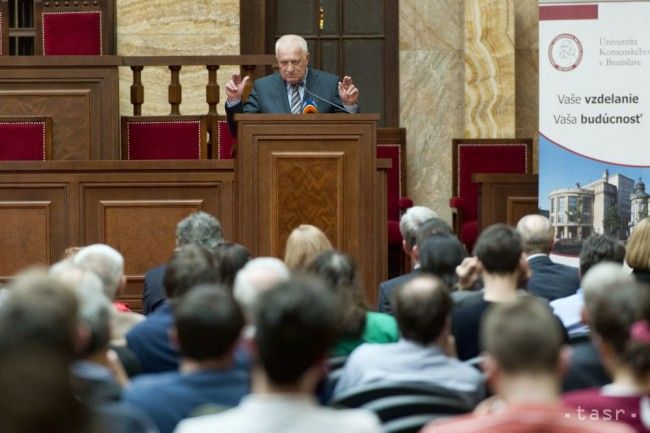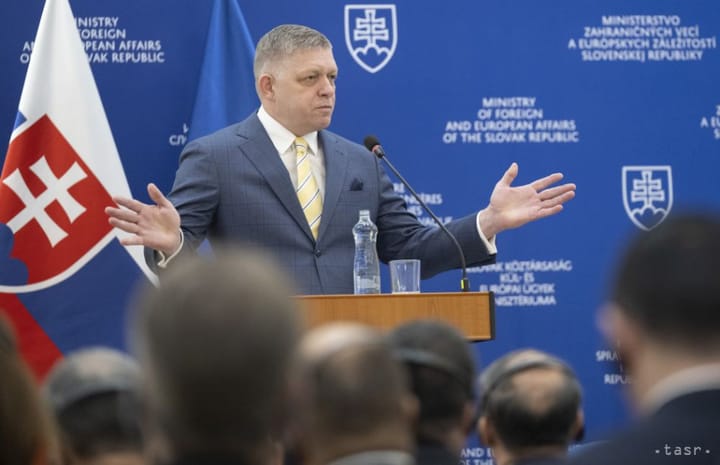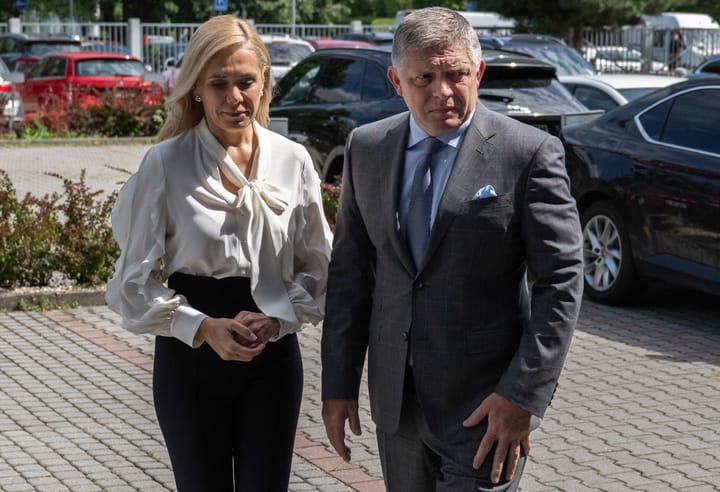Klaus: EU and Euro Bringing Different Effects from Ones Envisaged

Bratislava, March 23 (TASR) – The economy of the European Union is stagnating long term, with both the Union as such and the common currency the euro bringing quite different effects than originally envisaged, said former Czech president Vaclav Klaus in a lecture at Comenius University in Bratislava on Thursday.
“For Slovakia, the adoption of the euro has been the change of a single parameter, albeit a significant one, but it’s been a system shift for Europe. The net benefit for Slovakia seems to be bigger than that for Europe, or, in other words, the net adverse effect for Slovakia is smaller than that for Europe,” said Klaus, adding that a massive failure to comprehend an inherent problem with the euro still prevails in Europe.
“This problem is the result of what these institutions received as their destiny at their birth and what has become their innate defect and hereditary feature. This still prevails without any change, despite a number of significant signals from the real world,” said Klaus. This includes, for example, lengthy economic stagnation in the EU, with many EU and eurozone countries being still worse off than in 2007, while the EU has also obviously been falling behind dynamic growth in the rest of the world, mainly in Asia, noted the former Czech president.
Another such signal is a debt crisis in several eurozone countries, lasting high unemployment rates in individual EU-member states reaching 10 percent, the migration chaos and the inability to deal with Britain’s decision to leave the EU, said Klaus.
Meanwhile, the virtual removal of borders within the Schengen area has shown its shadowy sides in the emergence of mass migration. At the same time economists should reject claims that migrants represent a desirable labour force, as it has become obvious that they haven’t come to Europe to be engaged as such, while European countries have enough their own labour force among the unemployed, said Klaus.
“The current mass migration is destabilising Europe in political, economic, civilisational and cultural terms, and it isn’t contributing in any way to the emergence of a European identity, either,” added the former Czech president.



